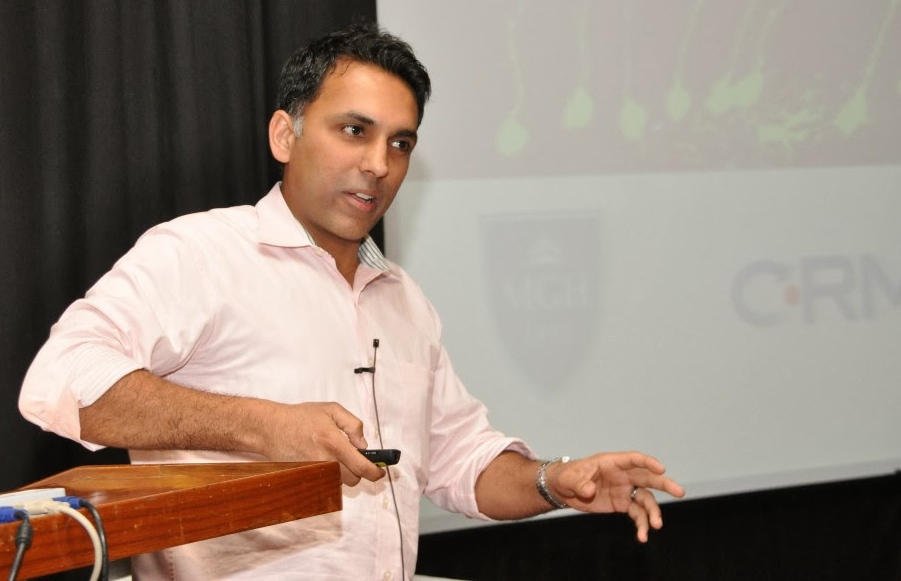
Neurobiologist Amar Sahay, PhD, has been awarded a $2.75 million grant from the National Institute of Mental Health (NIMH) to explore how the brain curbs fear, with the goal of developing new therapeutic strategies to help people with generalized anxiety disorder or post-traumatic stress disorder.
“A fundamental challenge in the field of psychiatric diseases is to identify neurobiological mechanisms underlying discrete components or endophenotypes of these disorders,” said Sahay, who is a Principal Faculty member of the Harvard Stem Cell Institute, and an Assistant Professor in Psychiatry in the Center for Regenerative Medicine at Massachusetts General Hospital (MGH), Harvard Medical School.
Patients with severe anxiety disorders such as post-traumatic stress disorder have trouble feeling safe, even in places most people would find rather mundane. Previous research has suggested a link between anxiety-related fear and poor processing of adverse memories. The location of this malfunction seems to be the hippocampus, an area of the brain associated with learning and memory that, in adults, is constantly generating new neurons from stem cells.
Dr. Sahay recently found that when hippocampal neurogenesis is increased in mice, they experience a decrease in generalization of fear. This work raised the questions of what about these new neurons helps modulate fear and could understanding of such molecular mechanisms open the door for novel treatments of anxiety disorders such as post-traumatic stress disorder.
He proposed this line of research to the NIMH and they responded with a $2.75 million grant as part of their Biobehavioral Research Awards for Innovative New Scientists (BRAINS) initiative. BRAINS is designed to support scientists in the early, formative stages of their careers as they embark on work that can profoundly transform mental health care.
“The goals of the proposal are to identify the neural mechanisms by which new neurons modulate the generalization of fear and to then target that molecular mechanism with small molecules to improve hippocampal function,” Sahay said.
He plans to collaborate with Harvard Department of Stem Cell and Regenerative Biology Professor Lee Rubin, PhD, who runs the Harvard Stem Cell Institute’s Therapeutic Screening Center. They will work together to develop a pharmacological approach to re-engineer an anxious hippocampus.
“This project is high-risk, but I’m excited that the BRAINS program is giving me the opportunity to pursue this research,” Sahay said. “This award speaks to the commitment of my team to our scientific mission and the rich interactions we have here at MGH and Harvard.”
